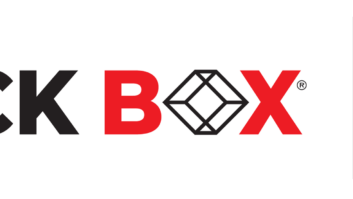Final Exam: When interviewing an applicant for a position in your company,knowing the proper questions to ask will not only save valuable time, butit will also help you make the right hiring decision.
Oct 1, 1997 12:00 PM,
Richard G. Ensman, Jr.
Hiring decisions are among the most important business decisions you’llever make. And in the hiring process, nothing is more crucial than theemployment interview.
Within the space of a brief interview, you must learn about the background,skills and experiences that your job candidate is bringing to the table.You must determine whether or not the candidate is able to work effectivelywith a variety of people and possesses aptitudes that fit the needs of theposition.
Here’s a collection of 50 of the world’s best interview questions. When itcomes time to hire, use questions from this list to help you make the rightdecision.
The candidate’s background1. Tell me about yourself.
2. What adjectives would you use to describe yourself?
3. Why are you here?
4. Describe the duties and responsibilities of each of your last two (orthree) positions.
5. Why do you want to leave your present job?
6. Would you explain the reasons for your last two (or three, or four) jobchanges?
7. Would you elaborate on this particular activity (note the activity) youmention in your resume?
8. What are your most significant accomplishments?
9. How do you see this position in relation to your overall career plan?
10. Summarize your present salary and benefit package.
11. What salary and benefits would you require if you were employed here?
The candidate’s skills1. If you could start your last job (or your career) all over again, whatwould you do differently?
2. What’s the most difficult problem you’ve faced in the last two years?How did you handle it?
3. Describe a crucial responsibility that you held in your last position.
4. What did you learn from your last job?
5. Give me a few examples of your initiative.
6. What were the biggest mistakes that you made in your last job (or career)?
7. How do you evaluate yourself?
8. What would you say are your most important and valuable skills? Why doyou believe these are important?
9. What steps are you taking these days to upgrade your skills or learn newones?
10. Show me a sample of your work.
11. How can you contribute to our bottom line?
12. What concerns do you have about working in this position or in thisorganization?
13. What are your weakest skills? How have you addressed these weaknessesin the past?
14. What criticisms about your work have you received over the last severalyears? How have you responded to these criticisms?
15. What academic strengths did you show when you attended school?
The candidate’s teamwork talents1. Describe your relationship with your supervisor. Your peers. Yoursubordinates (if applicable).
2. What would your present supervisor say about you? How about your peers?Your subordinates (if applicable)?
3. What was the most difficult work relationship you encountered duringyour last job (or career)? How did you handle this difficulty?
4. Without using names, describe two or three of the worst people you’veever worked with. Why were they so hard to work with? How did you manage towork with them?
5. What do you look for in a supervisor? In co-workers?
6. What kind of supervision do you need?
7. How did your supervisor give you feedback in your last job? How did yourpeers assess your work?
8. Give me an example or two of your teamwork skills.
The candidate’s match with the position1. What did you like about your last job? Dislike?
2. What challenges are you seeking in a new job?
3. How do you make decisions?
4. What kind of organization do you like to work for?
5. Describe your ideal employer.
6. Describe an ideal work day for yourself.
7. What kind of earning power do you want to have five years from now?
8. What motivates you?
9. Why do you think you’d do well here?
10. What would you do your first day on the job?
11. What would your top priorities be during your first week (or month, oryear)?
12. How would you spend the bulk of your time on the job?
13. How will you transfer skills from your last job to this job, if you’rehired?
14. Why should we hire you?
15. What other positions are you considering right now?
16. If you’re hired, how long would you see yourself staying in thisposition? Why?
Using what you learnThe problem with an interview is you are spending an hour or so determiningwhether or not this applicant is someone you could work with for years.That’s not a lot of time to cover background, skills and experiences, letalone personality and ability to work with others.
Preparation is the key. If you approach the interview with a firmunderstanding of the candidate’s background and an idea of the questionsyou will ask, you can gather the information you need to make an informeddecision. If you try to wing it, read the application in front of theapplicant and just ask whatever comes into your head, then you willprobably miss whole areas of concern. By keeping these 50 interviewquestions in front of you, you can ensure that you ask questions from eachcategory to help you make the right decision.
Exercise solid interview skills, and you will learn volumes about aprospective employee. Use these tips to help plan top-notch interviews andassess the quality of the match between your needs and the skills of jobapplicants.
Carefully review the candidate’s resume or application form before theinterview. You should know the candidate’s background so well that youdon’t have to refer to the paperwork in front of you while you’reconversing with the candidate.
If you need a candidate’s resume or application form clarified, open theinterview with questions in the areas that you want to probe.
If you’re interviewing several candidates, be sure that at least some ofyour key questions are identical for each. You’ll be better able to comparecandidates as a result.
To make the evaluation of candidates easier, think about the ideal answersto interview questions before you begin your interviews.
Rely on two sets of interviews if you can. Your preliminary interview willassess the candidate’s general qualifications for the position; a later,in-depth interview will explore skills and match for the job in greaterdepth.
Keep your questions open-ended. Begin questions with the words “why” or”how.” These questions will encourage the candidate to talk about himself.Avoid obviously leading questions; the candidate knows the right answer tothese.
Don’t spend a lot of time talking about yourself, the job or theorganization during the interview. Save this until the conclusion of yourconversation or until you’re ready to make a hiring decision.
Focus on the candidate’s measurable accomplishments during yourconversation, not on vague talents or subjective impressions of hisperformance.
Don’t make or imply any promises during the interview. Under somecircumstances, these statements could constitute a contract and come backto haunt you later.
Listen for evidence of serious job-related problems during the interview -poor attendance, lack of integrity or loyalty, inability to maintainworking relationships with others. Probe further by carefully checkingreferences.
Ask the candidate to comment candidly about any problems he has had in thepast. Remember that problems, in and of themselves, don’t necessarilydisqualify a candidate from a job. It’s what the candidate has learned fromthe problems that counts.
During the interview, make brief notes – you’ll need them to recollect thespecifics of the interview later on, but don’t bury yourself in yournotepad. Better yet, use a pre-printed interview form that allows you torecord your notes in prescribed categories.
If a candidate seems too enamored with the position, try persuading himthat he and the job don’t seem to match. The response will reveal muchabout the candidate’s interests, perseverance and commitment.
Watch the candidate’s body language during the interview. It reveals muchabout his comfort level with the position and his interpersonal skills.
Always be forthright about major problems the candidate might encounter inthe job. Better to save this for the end of the interview process, however.
Ask the candidate for some additional references, not included on theresume or application, on the spot. Call them.
Vigorously avoid all questions related to gender, marital status, race,ethnic background and other personal characteristics that cannot legally beused as the basis for your hiring decision.
Use the interview as an opportunity to assess the candidate’sself-management skills: his ability to handle tough questions, to analyzefacts and ideas quickly, to think fast under pressure.










